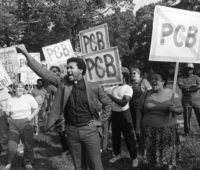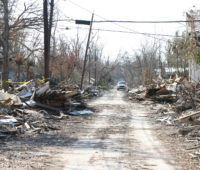The first step in research on “just environments,” writes Julie Sze, is to name the sources of the problems at the root of the poverty/injustice/environment nexus, rather than their impacts alone. By revisiting the history of the terms environmental racism, environmental justice/injustice, and environmental inequality, Sze demonstrates how the specificity of each term led to different research questions and approaches. In order to align public understanding of environmental problems and possible “solutions,” Sze argues that scholars must clarify the roots of environmental problems―for instance, racism, capitalism, and colonialism.














